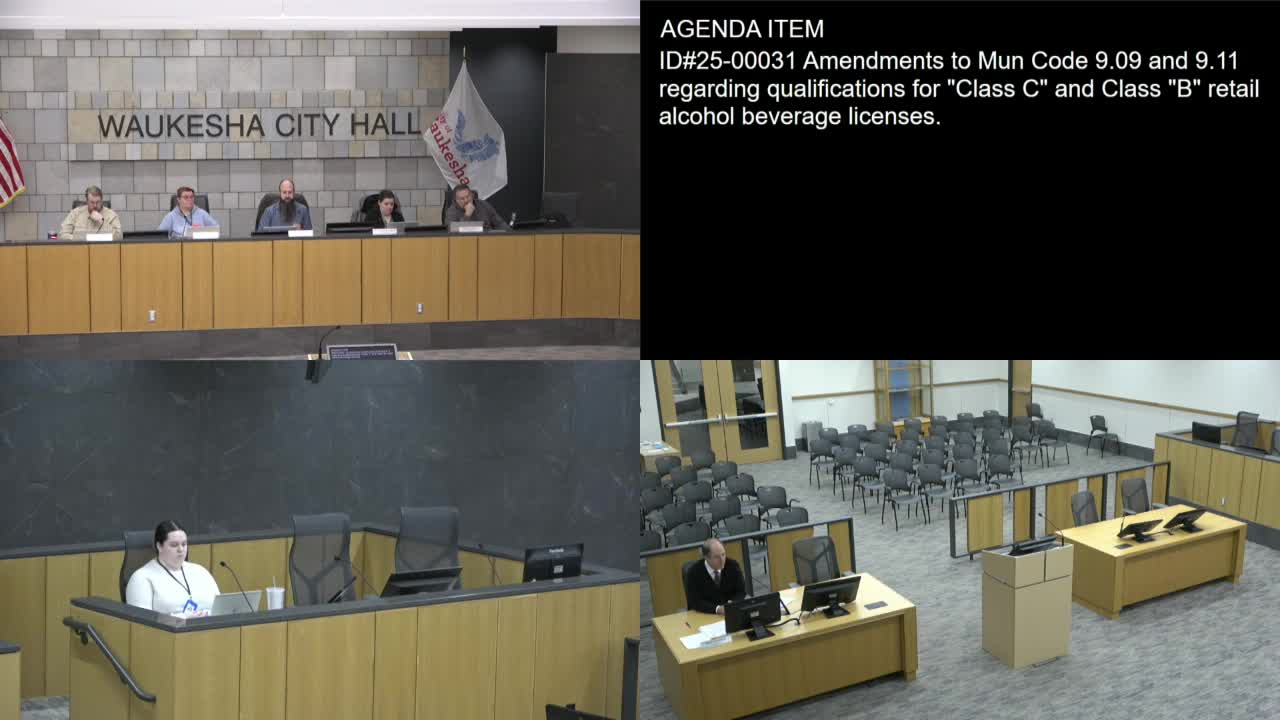Committee recommends repealing obsolete municipal code language on Class B and Class C license qualifications to align with state law
Get AI-powered insights, summaries, and transcripts
Subscribe
Summary
Committee members recommended the Common Council repeal portions of Municipal Code sections that required restaurant status and revenue calculations for Class B and Class C retail alcohol licenses, saying state law now preempts those local provisions and the local provisions are difficult to enforce.
The Waukesha Ordinance and Licensing Committee on Monday voted unanimously to recommend that the Common Council repeal obsolete municipal code language that required restaurant status and revenue calculations to qualify for certain Class B (beer-only) and Class C (wine) retail alcohol beverage licenses.
Brian, the city attorney, told the committee that state statute has changed and now allows Class C licenses without requiring an applicant to operate as a restaurant. He said the municipal code language that required an applicant to be a restaurant or to show that at least 65% of revenues came from nonalcoholic items is inconsistent with current state law and likely unenforceable.
The attorney said the revenue-calculation requirement for Class B beer-only licenses (to determine whether a licensee meets a percentage threshold) appears to be obsolete and he was not aware that such calculations were being done in the clerk’s office. Committee members described the provisions as archaic and unnecessary and recommended repealing them to bring local code into compliance with state statute.
A motion to recommend the proposed amendments to the Common Council was made and seconded; the committee voted unanimously to forward the recommendation.
Votes at a glance: Motion to recommend repeal of obsolete municipal code provisions relating to Class B/Class C license qualifications — approved unanimously.
The committee directed staff to forward the recommended ordinance language to the council for formal adoption.
